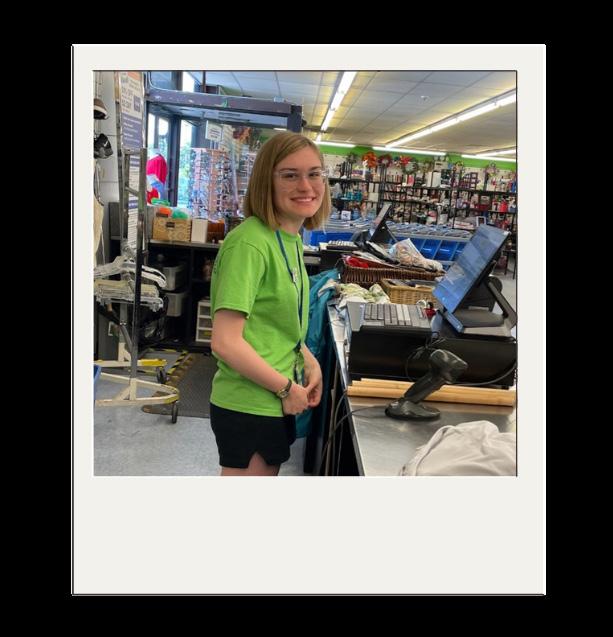POSSIBILITIES






Editor-in-Chief
Marian Baldini, CEO & President
Executive Editor
Gregg Kelinson, Vice President of Quality and Innovation
Editor
Russ Stewart, Director of Community Philanthropy
Contributing Writers
Sydney Kerelo, Creative Content Manager
Centers Board of Directors
Jim Andrews
Steve Brenneman
Merri Brown
Roy Diamond
Kevin P. Dougher
Colin D. Dougherty
James Garvey
Carol Hammarberg
Scott McCloskey
Laura McDonald
Sean Outen
Eric Rahe
Mona Zander
Design
Services Board of Directors
Sheila Bruce
Patricia Bush
Frank Guthridge
Tracey Jasey
Mamta Maini
Sean Outen
Stephen Van Osten
The Rev. Dan Smith
Mona Zander
Aubrey Hoffert, Digital Media Manager
Photography
Aubrey Hoffert, Digital Media Manager
Sydney Kerelo, Creative Content Manager
Possibilities is published by KenCrest Services, 960A Harvest Drive, Suite 100, Blue Bell, PA 19422
How to Reach Us
610.825.9360 kencrest.communications@kencrest.org
KenCrest is a 501c3 non-profit human services provider throughout Pennsylvania, Connecticut, and Delaware. www.kencrest.org
Our Mission
KenCrest’s mission is to support community development by exploring possibilities, mobilizing resources, and empowering dreams.
Published: September 2024



As summer turns into fall, we often feel a greater sense of community. Families return from vacation, classrooms fill for another school year, and friends crowd around the TV to cheer on their favorite sports teams. It’s connections like these that we work to extend into the world of those living with intellectual or developmental disabilities. In this edition of Possibilities, you’ll discover how KenCrest is nurturing old and new relationships throughout our communities.
One such example is the story of how KenCrest’s Enabling Technology team has been able to expand its reach. Thanks to new grant funding, services have grown to support older Pennsylvanians who need wheelchairs, voice assistants, and other devices to increase their independence and quality of life. Another heartwarming story is about a Pennsylvania couple who, in a beautiful display of compassion, opened their hearts and homes to several individuals with IDD. Their story is a testament to the love and joy that can be found anywhere, and it’s sure to make you smile.
As you read through the stories in this issue, I hope you will be inspired to look for possibilities, advocate for those who don’t have a voice, and help others throughout your community. Each of us has the power to make a difference, and your involvement is crucial in bringing about significant change. Together, we can empower our communities and create a brighter future for all.

Gregg Kelinson Vice President of Quality and Innovation
KenCrest fights to remove the Lifetime Cap on Assistive Technology in Pennsylvania to continue helping those with an intellectual or developmental disability thrive.
By Sydney Kerelo
For more than a year, KenCrest has been at the forefront of the battle to remove the Lifetime Cap on Enabling Technology in Pennsylvania. This cap limits the investment in life-enhancing devices for individuals with intellectual or developmental disabilities to $10,000 throughout a person’s life, which is a substantially low number compared to the rising cost of living and technological advancements.
“We want to remove the term ‘Lifetime’ from the Pennsylvania cap on Assistive Technology,” says Director of Government Relations & Advocacy Chip Riddleberger. “Other states have removed the lifetime cap and made it a two to three-year cap of $5,000 to $6,000 instead. So, after two to three years, the individual would get another $5,000 to spend. We think this is something Pennsylvania should consider because, as we age, we require more support, and having a lifetime cap will prevent us from adequately allotting that money to the individual's needs."
At KenCrest, most of the people we support depend on Enabling Technology devices to enhance their quality of life, independence, and dignity. Take Ryan, for instance. He used to struggle with showering alone, often forgetting specific steps. But with the help of KenCrest’s Enabling Technology team, he now has an Amazon Echo Dot and a Flic Wireless Button, enabling him to hear guided directions for showering with just a press of a button.
“Enabling Technology even offers smart faucets and toilets which allows people to toilet independently,” says Gregg Kelinson, Vice President of Innovation.
“Having someone help you in the bathroom can be uncomfortable, and having devices like this can help them regain their dignity and independence and boost their self-esteem.”
Another individual, Patricia, who is a wheelchair user, wanted to live independently but struggled to reach countertops, clean her floors,
or open doors for herself. However, since Enabling Technology's intervention, she now has an automatic door opener, ADA-compliant countertops, and a specialized Roomba that vacuums and mops her floors for her. She was able to move into her own apartment and live independently because of the supports she received.
However, the life-changing impact of these devices is accompanied by a significant financial strain. The cost of Enabling Technology devices can quickly add up, making them unaffordable for many individuals in need. For example, a motorized wheelchair can cost up to $4,000, with only a lifespan of 3-10 years.. This is a prime example of why the policy needs to be revised.
"For people who can’t ambulate to eat, there is a machine called an Obi, an adaptive eating device with five compartments in a bowl, with an electronic arm connected to a spoon. All the person has to do is open their mouth, and the machine will pick up the food and place it in your mouth,” says Kelinson. “But although this device helps people eat independently, it’s $8,000. Yes, there are more inexpensive devices like the Amazon Alexas and Ring cameras, but even with those, they add up over time.”
KenCrest opened its first Smarter Living Home last year to showcase the technology devices people can purchase to assist with daily living. The house was a former group home that was vacant when the Director of Operations Supports, Kellie Smith, and the Director of Infrastructure & Security, Tim Bosch, decided to revamp it for a new purpose. The project was funded through KenCrest's New Business Ideas.
This home showcases various devices and accessibility features like tilt mirrors, motionactivated faucets, smart toothbrushes, and more. There is even a combination washer-dryer unit for easy access and various GrandCare Tablets to
conduct health monitoring with a blood pressure cuff, thermometer, etc. The device can create tasks, provide guided prompts, and display reminders.
Having this home is especially helpful as the people KenCrest supports age and need new technology. After seeing an urgent need for Enabling Technology within the greater community, KenCrest now also supports older Pennsylvanians who do not have a disability but who are in need of adaptive devices.
“One person’s needs in their 20s or 30s could potentially be very different from what they could
need in their 50s or 60s,” says Riddleberger. “So, from a health perspective, having a lifetime cap of $10,000 doesn't make sense when expenses are rising and needs change throughout a person’s life.” KenCrest has hosted several Pennsylvania representatives at the Smarter Living Home, including State Representative Joe Ciresi, State Representative Joe Webster, Deputy Secretary for the Office of Long Term Living Juliet Marsala, Director for the Bureau of Community Supports Lauren House, and the Regional Director for the Office of U.S. Senator Bob Casey Tia Watson. Plus, more than
“ “
It should be about the quality of a person’s life, increasing their independence and increasing their inclusion in the community, and Enabling Technology can do that.

100 visits from KenCrest staff members and people served to showcase what these devices can do to change someone’s life for the better.
“Assistive technology can be quite costly, and having a Lifetime Cap of $10,000 can become hard to stay within,” says Riddleberger. “So we want to discuss with our representatives the idea of removing the Lifetime cap because it should be about the quality of a person’s life, increasing their independence and increasing their inclusion in the community, and Enabling Technology can do that.”
Consider what you can do to help those with an intellectual or developmental disability live more independently within their community. How can you help us fight to remove the lifetime cap?


To learn more about KenCrest’s Enabling Tech program and how it can help those in your life today, by visiting KenCrest.org/Enabling-Tech.


Pennsylvania recently announced its budget for the 2025 fiscal year, with the I/DD community set to receive a substantial investment of $354.8 million in federal and state funding for Home and Community-Based Services, a seven percent increase from the previous year. A significant portion of this, $280 million, is dedicated to raising wages for Direct Support Professionals, a clear recognition of their invaluable contribution and the result of years of advocacy from KenCrest. The state is also bolstering its support for Early Learning, with $26.2 million in additional funding to maintain current payment levels and an additional $15 million towards the state’s Pre-K Counts program, increasing rates from $10,000 to $ 10,500 per child for a full day. Furthermore, there will be an additional $2.7 for the Head Start Supplemental Assistance Program.
Over the past few years, KenCrest, a key member of the Ability Network of Delaware (A.N.D.), has been instrumental in securing the $3.4 million needed to align DSP reimbursement with the new Delaware minimum wage of $15 an hour (effective January 2025). This achievement, along with a new rate study through DDDS for the fiscal year 2025, is a testament to the collaborative efforts and dedication of these organizations.
Additionally, H.R. 2941, the Recognizing the Role of Direct Support Professional Act, was sent for consideration in July of this year. This bill creates a distinct classification for DSPs within the Office of Management & Budget (OMB) SOC Manual. The benefit of this bill is better policies to address workforce challenges, solve worker shortages
within HCBS provider settings, and ensure DSPs receive the recognition and support they need to provide high-quality care.

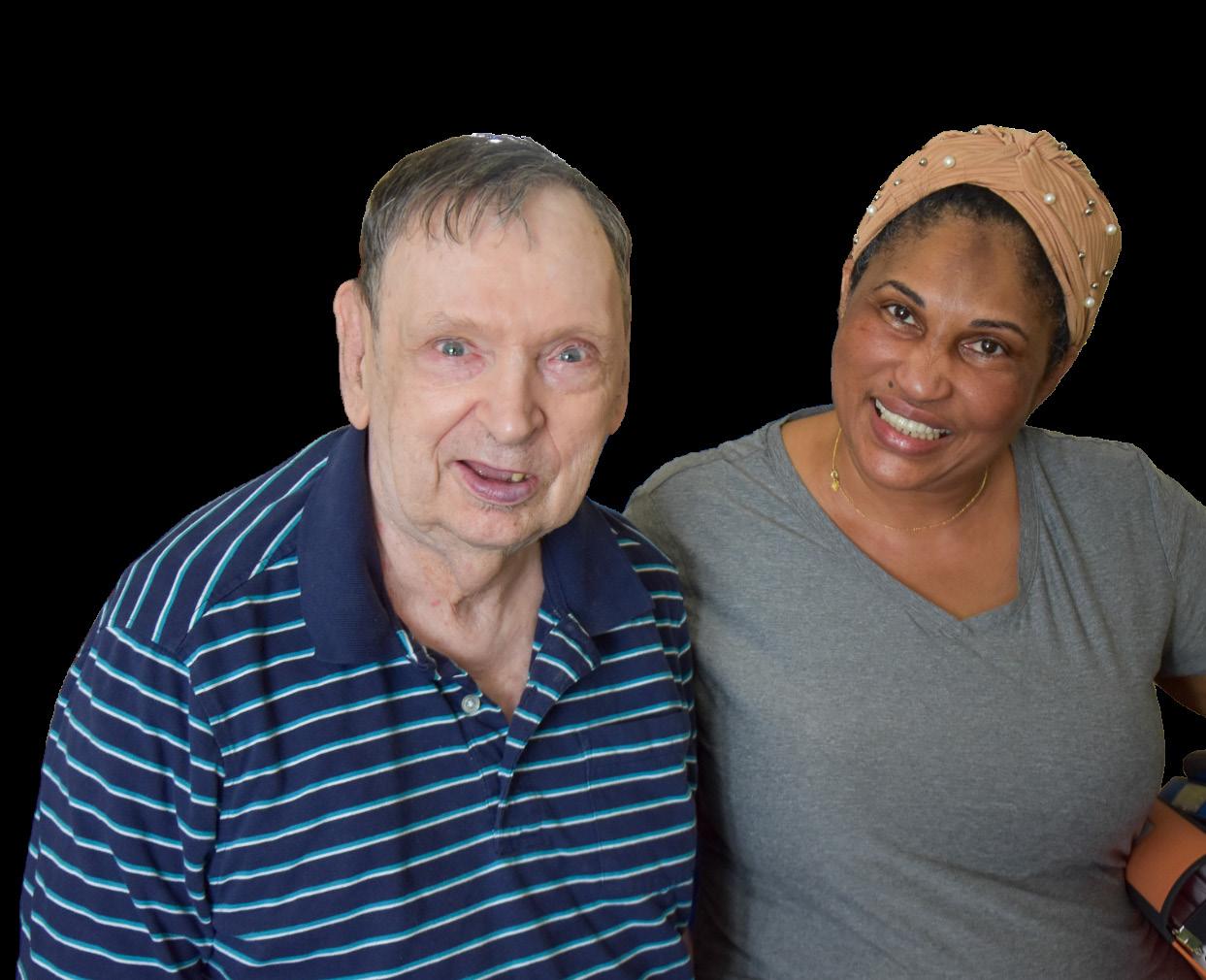

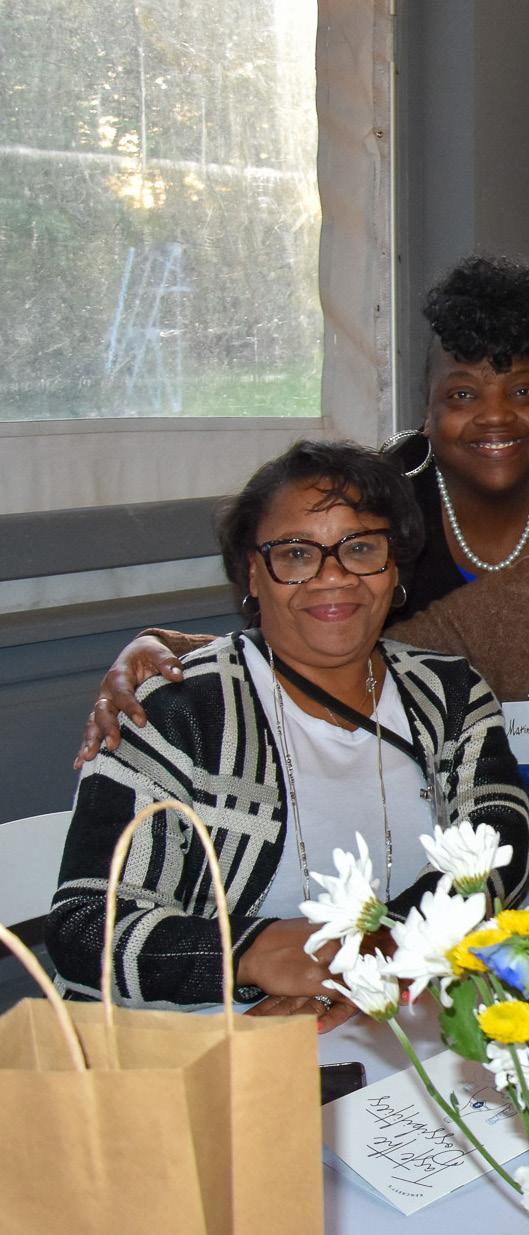

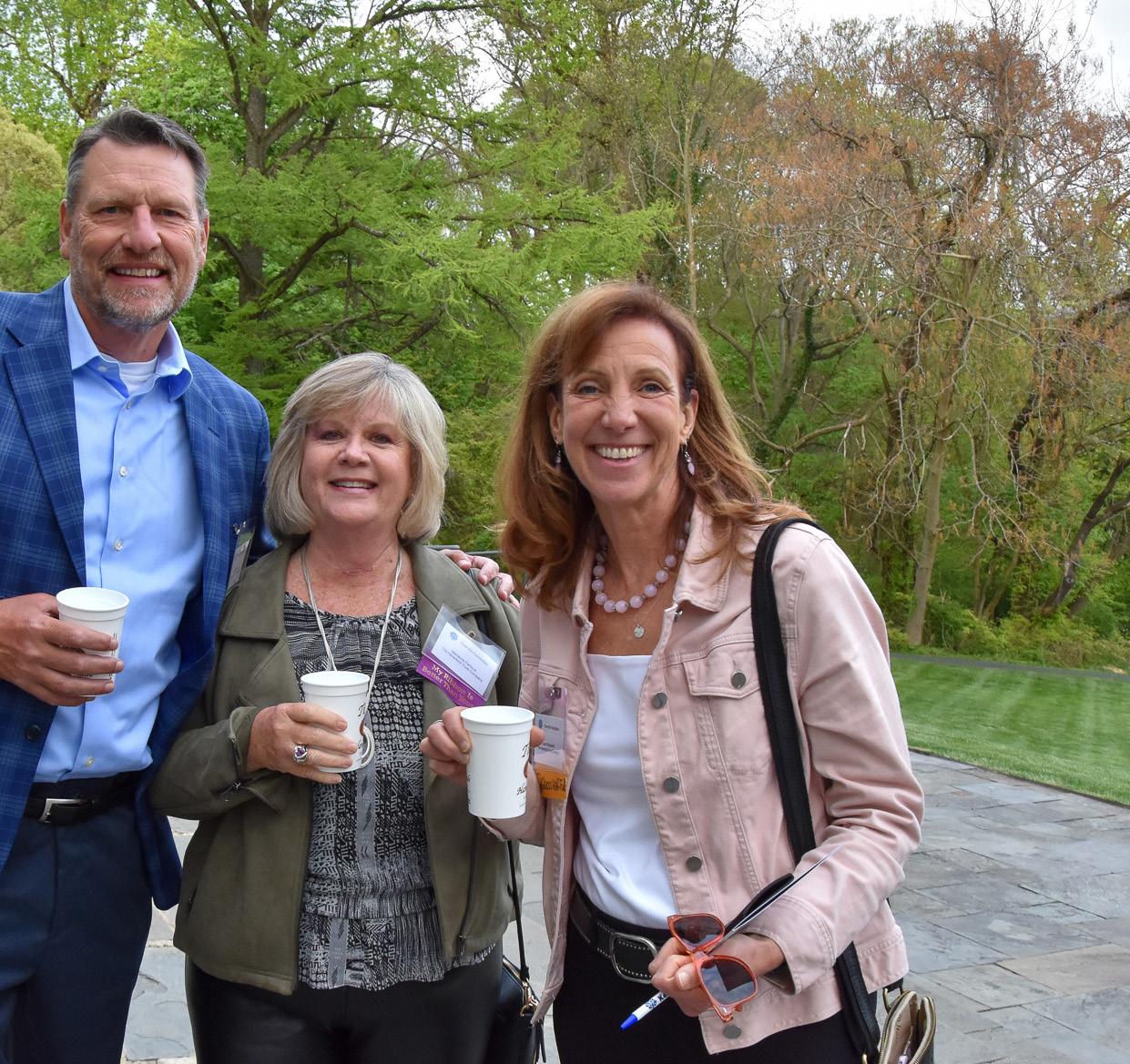
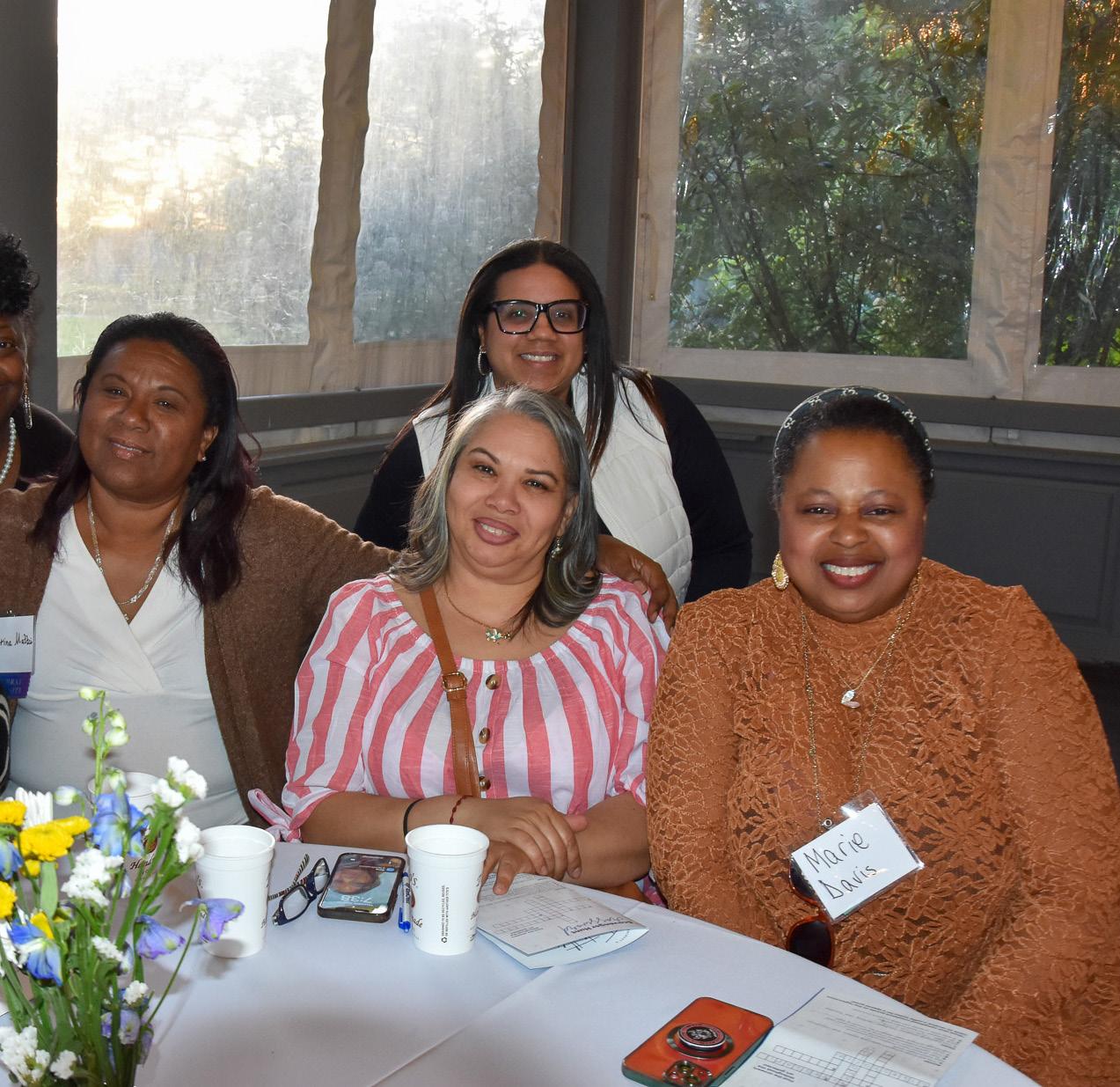

First Ever Taste the Possibilities Event Raises Over $100,000 With Your Help and Generosity!
Thank you to our sponsors and attendees for joining us at the Abington Art Center on April 25th for KenCrest’s newest event, Taste the Possibilities. Over 225 guests came together to enjoy award-winning food and drink from local vendors, stroll the galleries of the Art Center, and sing along to their favorite tunes compliments of The Piano Dudes. But most importantly, guests were able to learn more about KenCrest’s mission and support our own artists who were showcasing their creations. Together, we were able to raise $100,000 for new and innovative services to create inclusive communities where each person is valued for their talents.






Arlington Heritage Group
Marian Baldini & Larry Filtz
James & Mary Jane Brenneman
Loyce & Larry Brown
Carole Chapin CBIZ
Delta T Group Inc
Kevin & Katie Dougher
Colin & Angela Dougherty
Gap International
Dr. & Mrs. James C. Garvey
Carol Hammarberg
Haverford Trust Company
Colleen Kelly & Paul Hisem
Charles Horn III
John & Melissa Howe KeyBank
Aurora Kripa & Jesse Fells
Ellen & Ed Mansfield
Miller, Turetsky, Rule & McLennan
Jim & Elaine O'Connor
Oliver Heating & Cooling
Philadelphia Insurance
Eric & Shelley Rahe
Reformation Lutheran Church of Media, PA
Salmon, Ricchezza, Singer & Turchi
Laura Solomon & Associates
US Medical Staffing
Willits Pharmacy Services
Wawa
WSFS Bank
KenCrest’s Community-Based Services and Meaningful Day programs received a $10,000 grant to support memberships and classes for those with IDD.
By Sydney Kerelo
Earlier this year, KenCrest’s Meaningful Day initiative was awarded a $10,000 grant from the Legacy Foundation, a non-profit organization based in Plymouth Meeting, PA, that was started in 2003 by the Legacy Advisors to support adults and children in need as well as other charitable organizations that are in pursuit of educational, scientific, charitable, and religious purposes.
KenCrest’s Meaningful Day initiative enables adults with disabilities to choose and participate in activities that excite and interest them. It encourages them to safely, comfortably, and innovatively transition out of traditionally segregated day programs and into integrated community-based activities that provide happiness, confidence, and connectivity with their communities
But for many of the people KenCrest supports, financial constraints can limit their ability to learn new skills or engage in activities.
Consider this: if someone wanted to learn how to cook, they would typically enroll in a cooking class. However, these classes come with a hefty price of approximately $300 or $400 per session, which many individuals can’t afford. The Legacy Foundation grant, however, changes that. It covers the cost of all memberships or classes, making it possible for these individuals to pursue their interests, learn new skills, and, most importantly, build relationships with others who share their passions.
“We started out identifying 20 people we support and finding out what they wanted to do,” says Director of Community-Based Services Melissa Bailey-Raison. “We asked them, ‘If you could learn or do anything and money didn’t matter, what would you do?’ and many people said they would get a membership to Longwood Gardens or take a painting class. A few wanted to join a dance class or even join the YMCA. So, that’s what we did, and through that, those individuals not only got to do an activity they wanted to do, but they learned a new skill and made some great friendships doing it.”

Logan and Chuckie, two individuals supported by KenCrest’s Community-Based Services program, began visiting their local bowling alley each week. They crossed paths with a man and his partner, who would bowl at the same time. After a few interactions, the man revealed that he was a semiprofessional bowler and had a special offer for Logan and Chuckie. He wanted to teach them how to bowl and all the tips and tricks he’s learned. Each week, Logan and Chuckie meet up with him at the bowling alley for their lesson.
Another individual supported by KenCrest’s Meaningful Day initiative, Barry, was encouraged to join his local library because he loved to listen in on storytime. After a few weeks of attending, Barry met another person who liked to attend storytime and would sit next to him during class. Conversations sparked, and the duo became close, learning one another’s likes and dislikes. Their shared love for

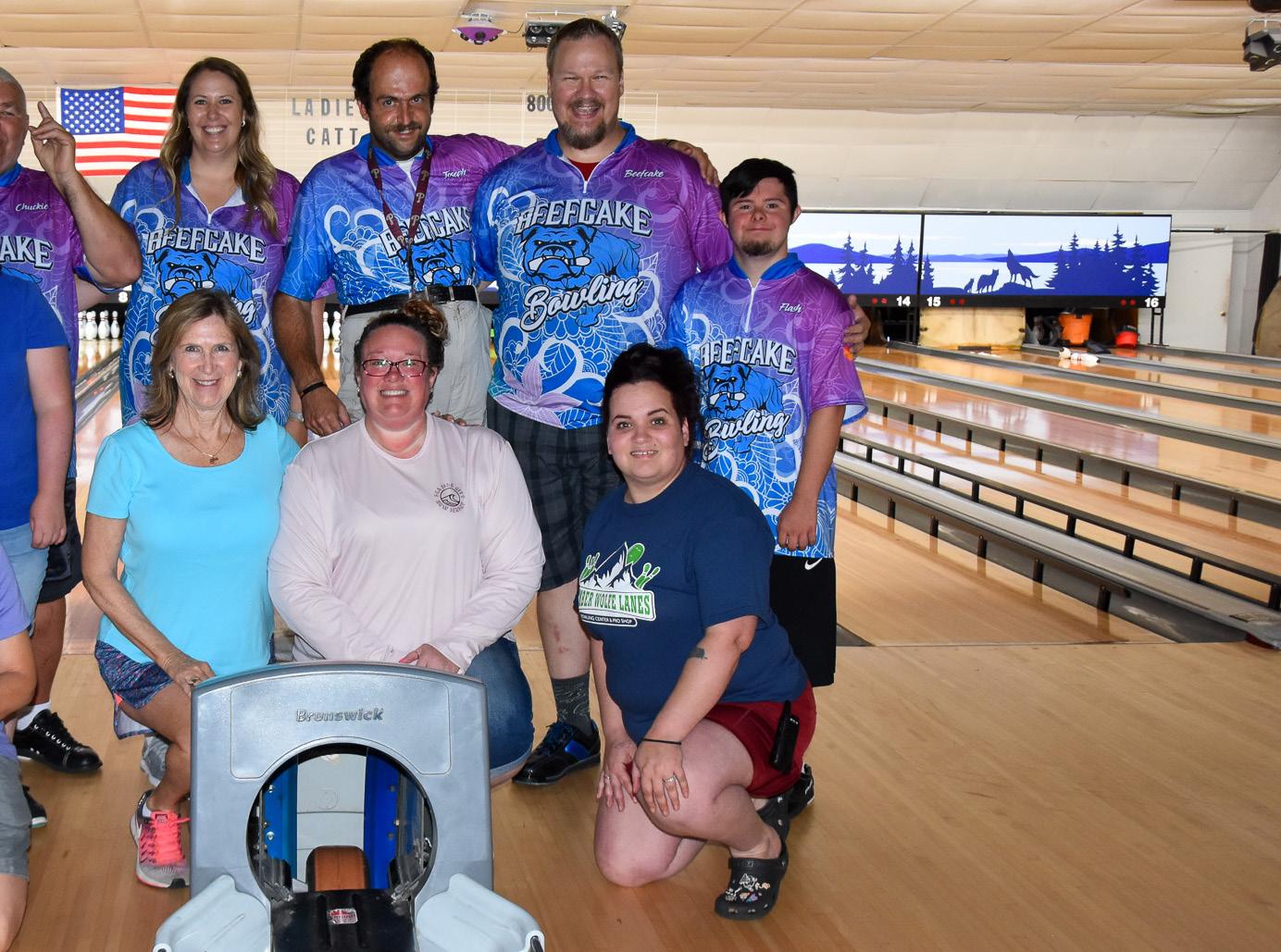

visiting farmers' markets led to a day trip to the Green Dragon Farmer’s Market in Lancaster, where they bought matching t-shirts. They have even been talking about taking another day trip soon.
Other individuals began taking various classes, such as self-defense, music lessons, dance classes at Peppermint Dance Club, and painting courses at Mt. Airy Learning Tree Course.

While many people chose to take classes to learn new skills, many decided to continue giving back to their community by volunteering at local organizations like Open Door Ministry, Montco Senior Adult Activity Center, Meals on Wheels, and Safe Harbor. All are organizations that fight against food insecurity in Pennsylvania.
“The Legacy Foundation grant gives the people we support the opportunity to explore new hobbies and activities they didn’t know about, but it also allows the community a chance to see what people with disabilities are capable of,” says Bailey-Raison. “The whole premise of Meaningful Day and Community Participation is to get away from disability-only clubs and get those we support integrated into their community with everyone.”
To learn more about KenCrest’s Meaningful Day program and how it can truly make a difference in everyday lives, visit KenCrest.org/meaningful-day.

could learn or do and money didn’t what would you do? “

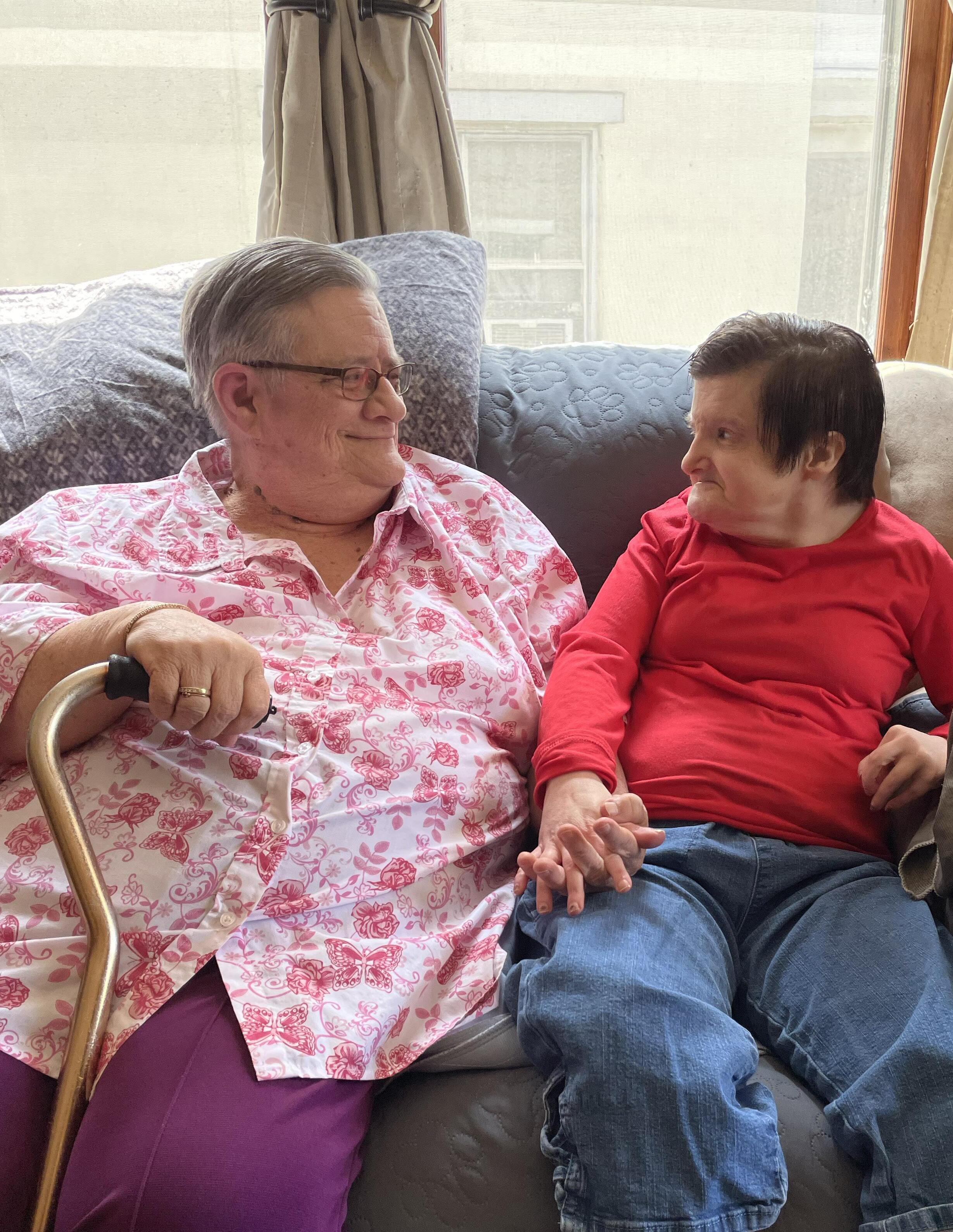
By Sydney Kerelo
For over 30 years, Cindy and Ron Ryder have supported individuals with intellectual and developmental disabilities in Pennsylvania. Their journey began in 1976 at RiverCrest, which was formerly a home and dormitory for children with Tuberculosis before it transitioned to a facility for individuals with disabilities.
Both Ron and Cindy worked at RiverCrest, helping those with disabilities. Throughout the years, they formed deep connections with many people, including one resident, Dan. The couple became so close to Dan that they wanted to pursue Lifesharing. This program connects people with disabilities to families that want to bring them into their hearts, their homes, and within their family.
Their decision to bring Dan into their home marked the beginning of a new chapter in their lives.
At the time, they worked as Program Managers and lived in one of KenCrest’s Adult Community Living Homes. To take in Dan through Lifesharing, they needed to have their own home. So, Ron and Cindy moved into a new apartment and continued working in the group home. One day, as Cindy prepared to head home from work, she noticed one of the residents, Ted, getting upset that she was leaving.
She asked, “Do you want to see my home and come have dinner with my family?” He got a huge smile on his face, sprung up from his seat, and grabbed his coat; he was so excited to go. That was the first night he had dinner with the Ryders, and after that night, they knew he wasn’t going back to residential living. He would be living with them.
After that, Dan and Ted lived with the Ryders and their daughter Christina, who grew up going to the pool, camping, and taking family vacations with Ted and Dan. They became her brothers, and the Ryders became their family.
One year, Ron installed an above-ground pool in the backyard of their home. "You couldn’t get Ted to go in, and you couldn’t get Dan to get out,” laughs Ron. But once they got in, they walked inside the pool for hours.
There were many good memories made with Dan and Ted. Ron remembers one camping trip to French Creek State Park, where Dan went for a walk while Ted was swimming. Dan ran into the bathroom stalls, and after a few minutes came walking back with a leather jacket on—one he had not had on before. Laughing, Ron says, “That was just who he was; he was funny and full of life. We would go to the mall, and he would stop, take off his shoe, put it on
the rack outside the store, and then put on the new shoe he wanted. You’d have to make him take the shoe off and return it, but he did it to make you smile. He was pretty funny.”
In 2010, Ted sadly passed away, and both his family and the Ryders were present. They grieved for him together, and KenCrest hosted a home-going ceremony at the bowling alley he would frequent. His family said that the best years of their son’s life were spent in Lifesharing.
Years later, the Ryders remain in contact with Ted’s family. “It's become wonderful; we have formed a very big extended family now,” says Ron. “His parents passed, and his three sisters have passed, but his brother lives in New Jersey, and we still keep in contact with him.”
One of Cindy’s fondest memories of Ted is that whenever she was sick, he would come home from his workshop, pull a chair beside her, tap her on the leg, and say, “It’ll be okay.”
“I think that’s the most important thing, the unconditional love you get back,” says Cindy. “You can’t put a price tag on that.”

For five years, Ted’s room sat empty. “We just didn’t feel comfortable filling it then,” says Ron. “Then we heard about Miss Amy, who had been with another provider for 28 years and decided to retire. So, we began doing respite with her, and from there, we decided she would stay; she was a part of our family.” This Christmas, Amy will celebrate her ninth year living with the Ryders.
One of the things that made Amy’s welcome
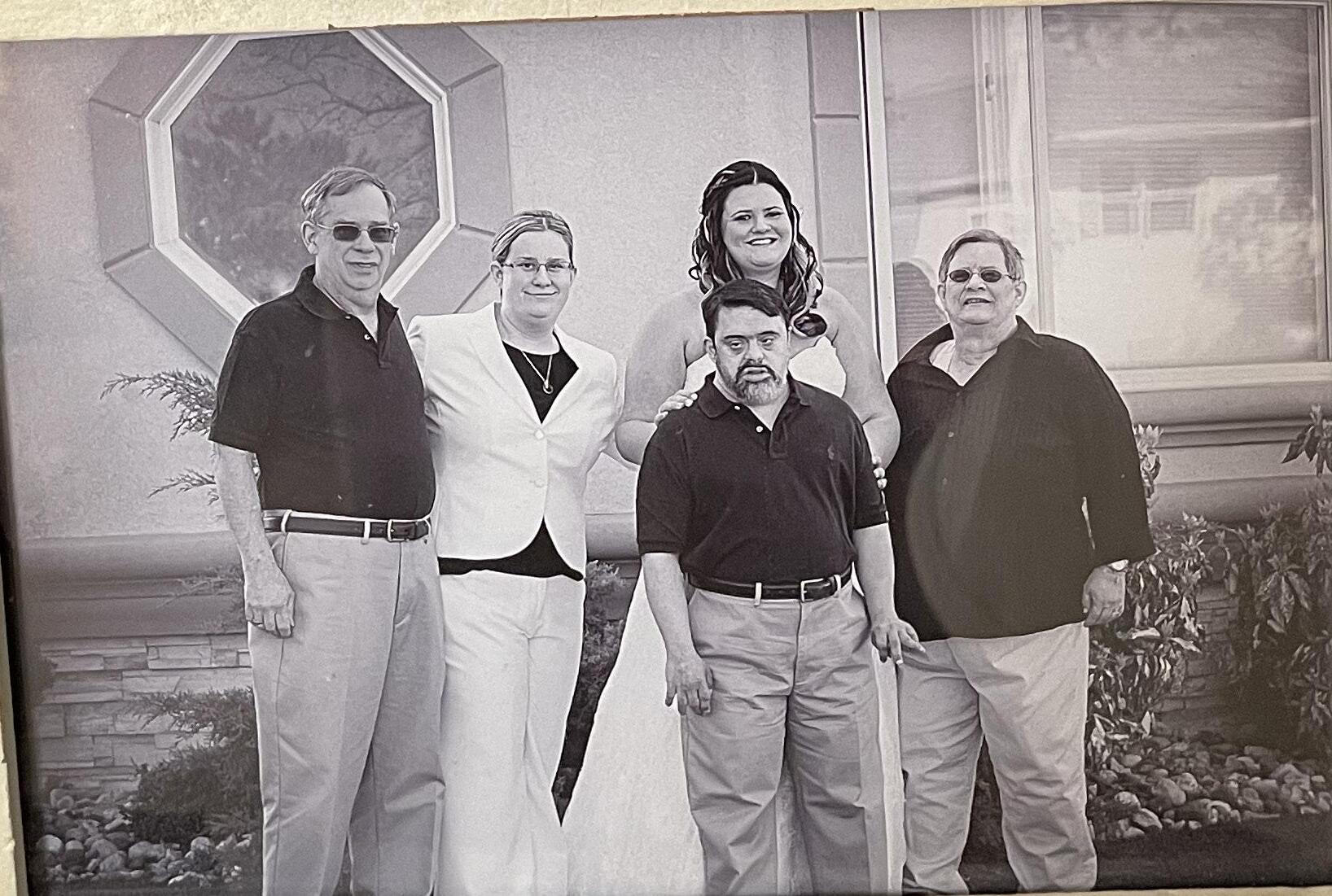
into the Ryder family so special was that she already knew Dan. They met through dances and KenCrest programs and would take music classes together weekly, so bringing her into Lifesharing made sense. Amy and Dan had a close relationship. During music class, Dan would play the tambourine, and Amy would play the rhythm sticks. During class, Dan would drop his tambourine on purpose, pretending he didn’t want to play until Amy would go over and pick it up and get him started again. Their relationship was sweet and pure, and it only increased as they became a part of the same Lifesharing family.
A few years ago, Dan’s health declined drastically, so much so that he now requires nursing home-level care. Although he no longer lives with the Ryders, he’s still a part of their family, and the couple visits him weekly.
“You have to have the desire to do Lifesharing,” says Cindy. “It's not about the stipend you get from doing it; if you do it for the money, you won’t last. You do it because you want to. Because you want to touch someone's life because it’s rewarding. They will be a part of your family and rely on you.”
“No matter where you go, you need to be ready to advocate for them because there’s so many people out in the world that either don’t care to help them or don’t know how to,” adds Ron.
Even though Ted and Dan are no longer with the Ryders, they still remember them and cherish the memories they made. Inside their home, along the back wall, sits a table with framed photos displayed of Ted, Dan, Amy, and their daughter Christina. They will forever be a part of their family and love them
just the same.
Lifesharing is about more than taking care of someone; it's about including them in your family, home, and heart. They become a part of your family, and you become a part of theirs.


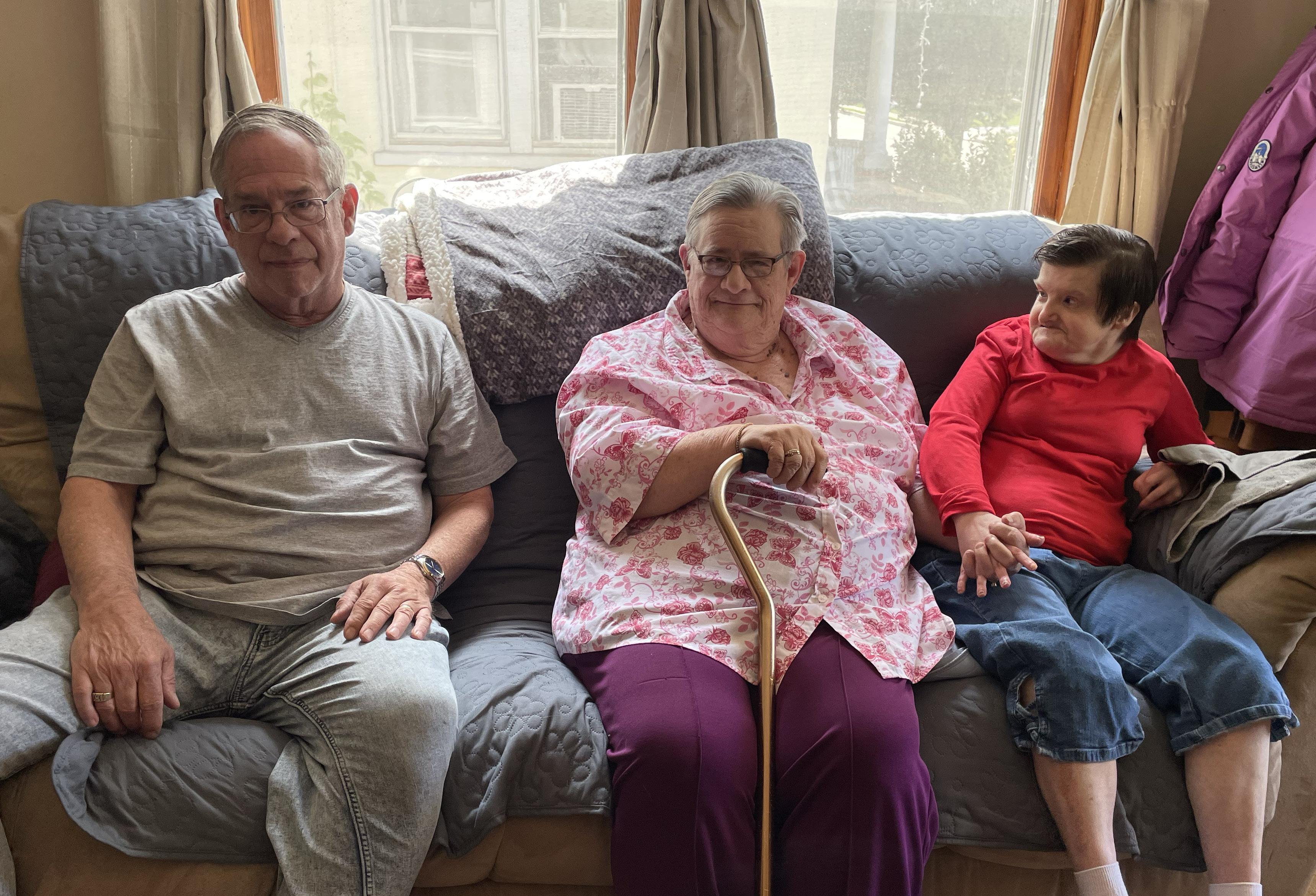
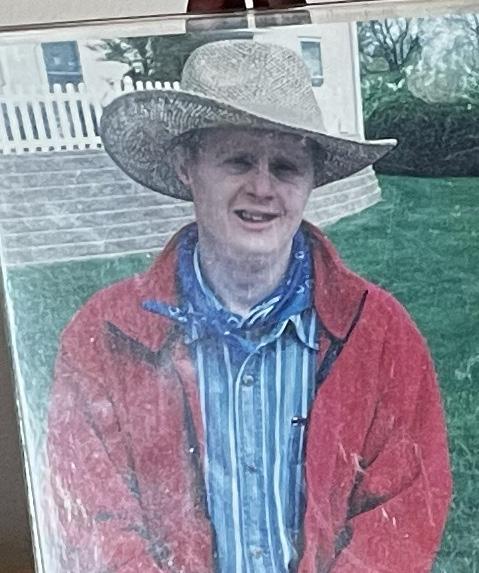
Reverend Harvey Davis Family Fund founded in 1999.
Are you interested in helping us spread a little more cheer this holiday season? Consider “adopting a family” or donating gifts, gift cards, or more.
For 25 years, people like you have helped bring a smile to the face of those we support. Your support ensures we continue the tradition of supporting individuals and families during the holiday season. We are grateful for your commitment to helping those in need and spreading some extra joy during the holidays.
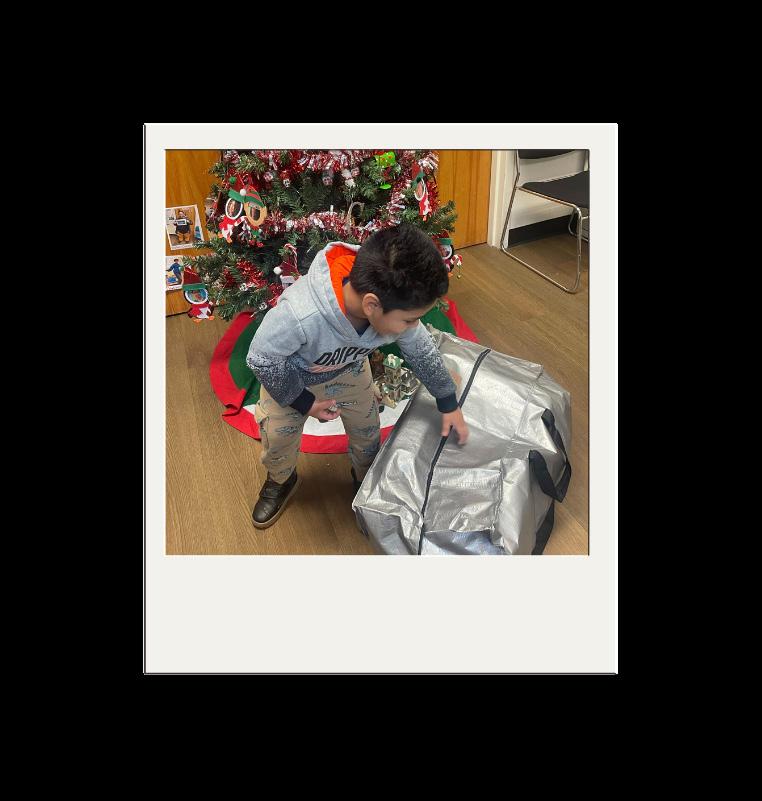
Gift deliveries will be accepted between Monday, December , at KenCrest’s corporate offices (960A Harvest Drive, Suite 100, Blue Bell, PA, 19422) between 10 a.m. and 3 p.m.

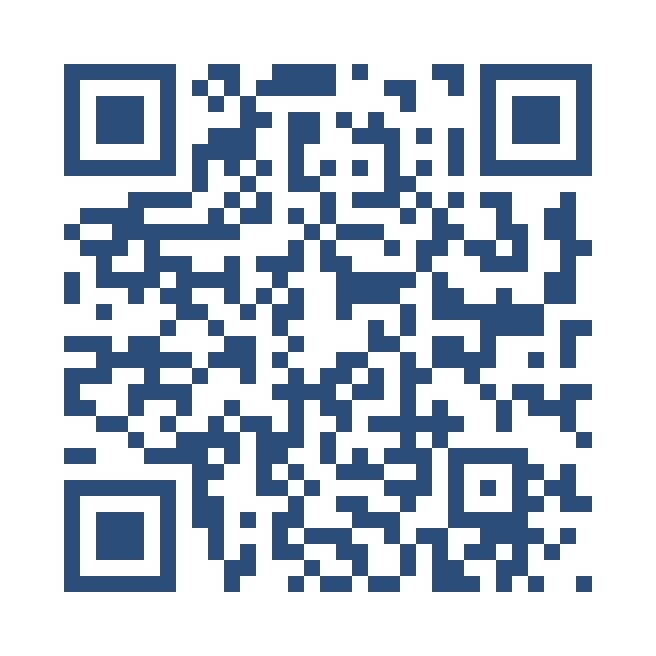

Scan QR Code or visit our website to adopt a fmaily today or find out more information! KenCrest.org/family-fund
KenCrest’s Early Learning Centers are continuously helping the children we support and their families.
By Sydney Kerelo
One October morning at KenCrest’s South Early Learning Center, a local woman from the community and a young girl walked in. This local woman helped the program director, Rosaida, for many years connect with community children looking for enrollment. But this instance was a little different. At first glance, Rosaida noticed something was off; the girl, let’s call her Anna, looked troubled and was wearing clothes that were too small for her. She showed signs of struggle, poverty, and neglect.
Rosaida discovered that Anna and her father had just crossed the border from Honduras. Her father rented a room with many other people in a house untili her mother and brother joined them later.
He had a job but worked day and night, so a woman from the neighborhood stayed with Anna and helped to take care of her. She wanted to enroll Anna in the Early Learning Center, but the father could only come on Saturdays when the center was closed. Rosaida opened the center for the day and met with the family. She looked at Anna more closely and again noticed something was not right.
“I noticed in her eyes that she was not acting like a child; she looked like she was in survival mode,” says Rosaida. “We brought her into the office and tried to give her food, and normally, kids rip open the snacks and eat them, but she didn’t. She wanted to save it, which is a sign of struggle.”
At this point, the weather had changed. It was getting colder, and the teachers noticed Anna wearing tights, short t-shirts, and shoes that didn’t fit properly. It was apparent that she needed new clothes. A group of teachers and staff members
came together and began buying her everything she needed: pajamas, clothing, jeans, socks, underwear, etc.
Rosaida even bought her toys. “I thought, ‘I wonder if she has any toys at home.’” She bought her a baby doll with a bathtub, diapers, and different
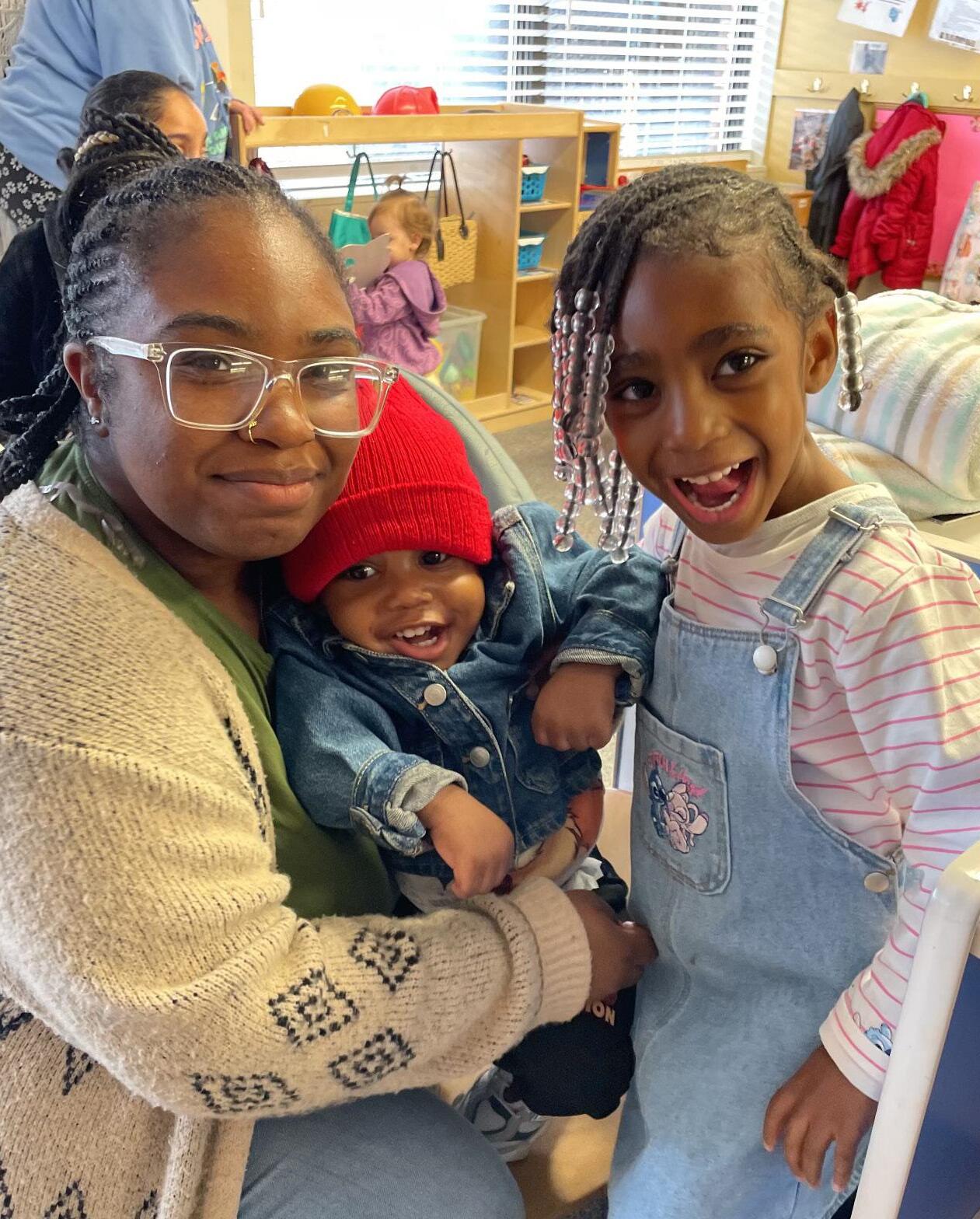
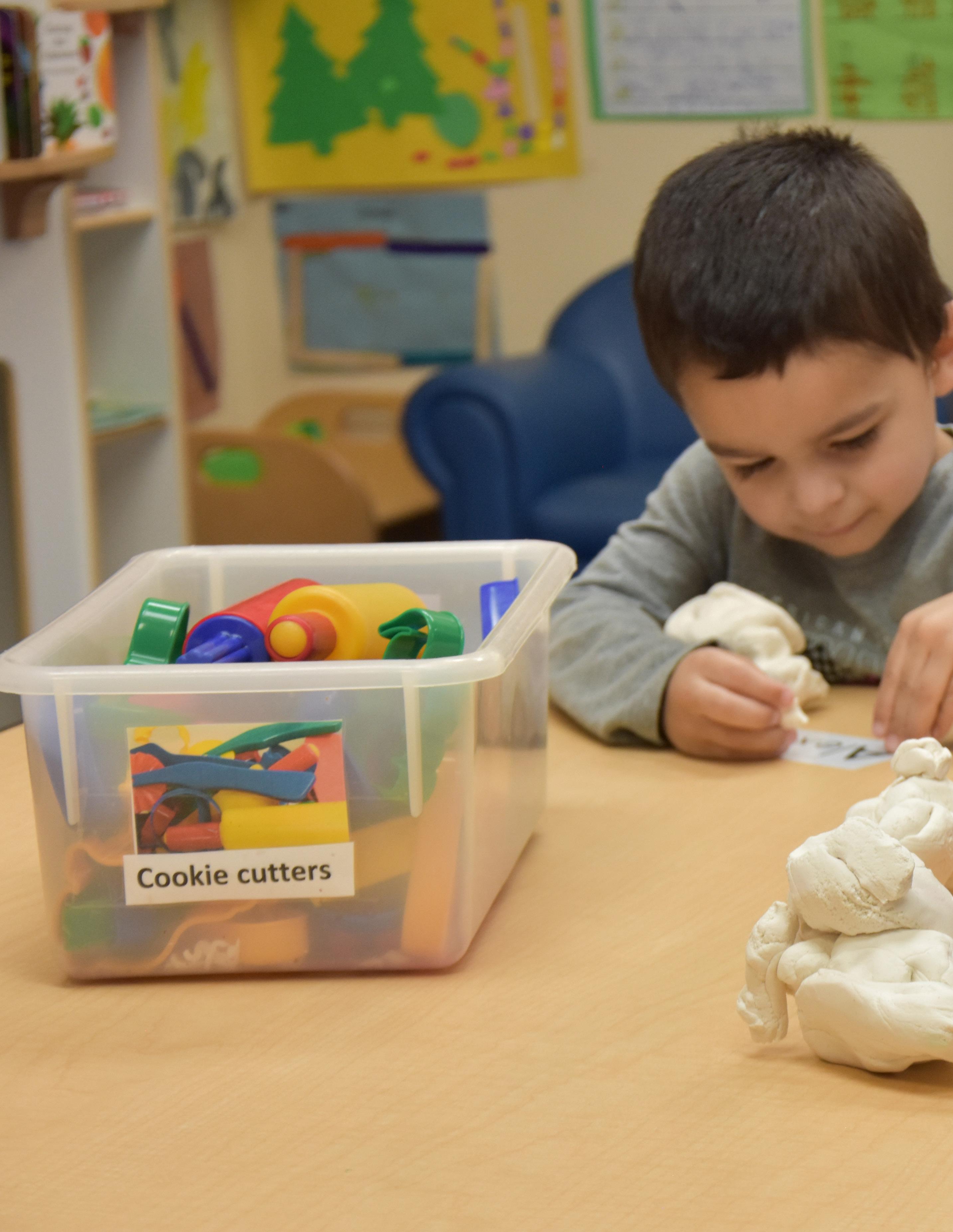
clothes. When she saw the toy, Anna’s eyes lit up.
“I saw the child come back,” says Rosaida. “She kept saying she had a baby, which we assumed was her brother. And she was so excited about the baby doll.”
By the end of February, Anna’s mother and brother arrived, and they were in the same condition: tired, scared, and lacking even the basic necessities. Again, the teachers and staff bought them clothing, house supplies, and baby items. They even went to Murphy’s Giving Market, a volunteer organization that provides food and works to fight food insecurity in the Upper Darby area. They grabbed everything they could for the family.
Anna’s life is entirely different now. She is no longer the scared girl struggling to survive; she is happy and healthy. She now walks into her classroom, says hello to her teachers, gives hugs, and even makes friends and shares her toys with other little girls.
“I have been a director here for ten years now, and we have seen a lot of families who struggle,” says Rosaida. “Recently, a child attending the center lost their father suddenly, and it is our job to show a certain level of caring not only for the children but also for the families and what they are going through.”
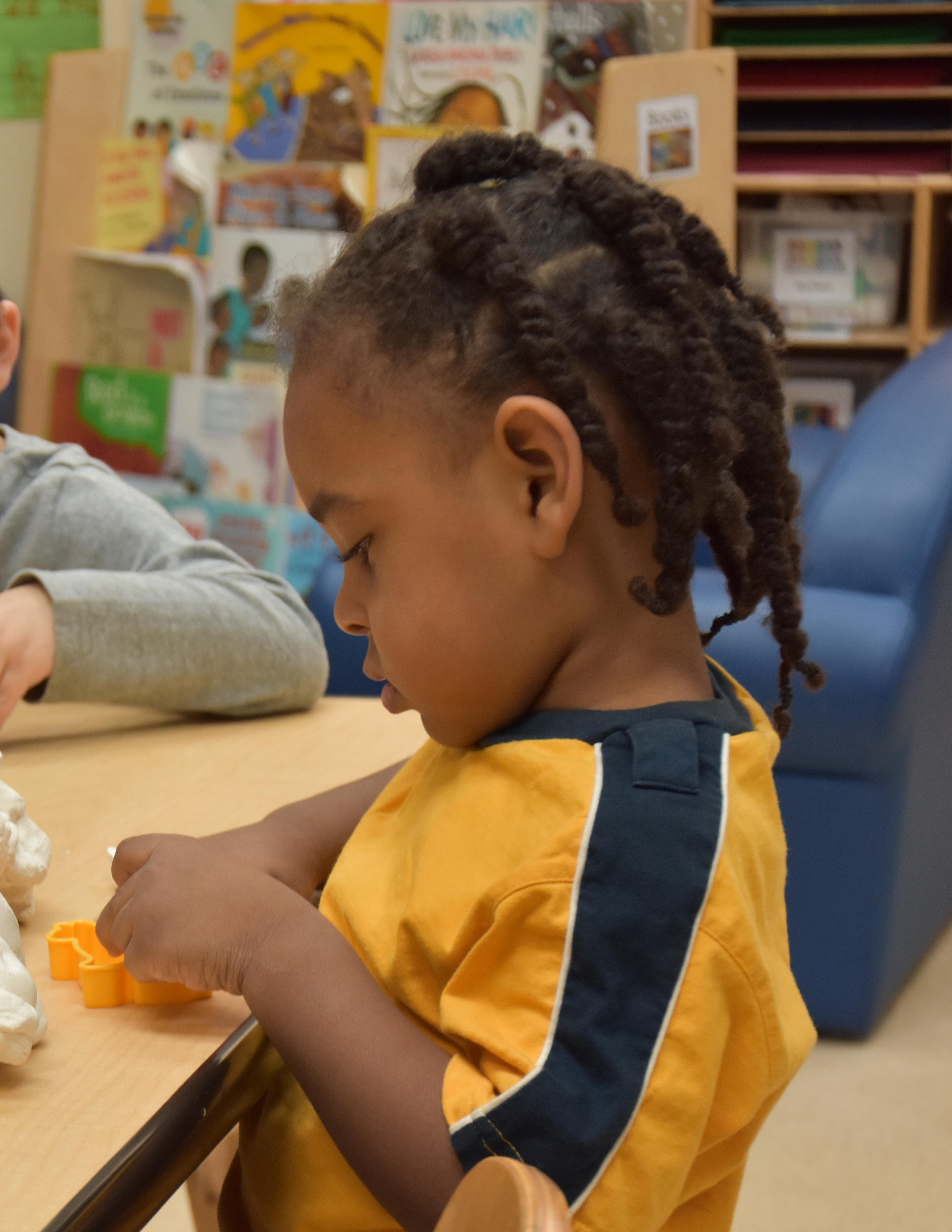
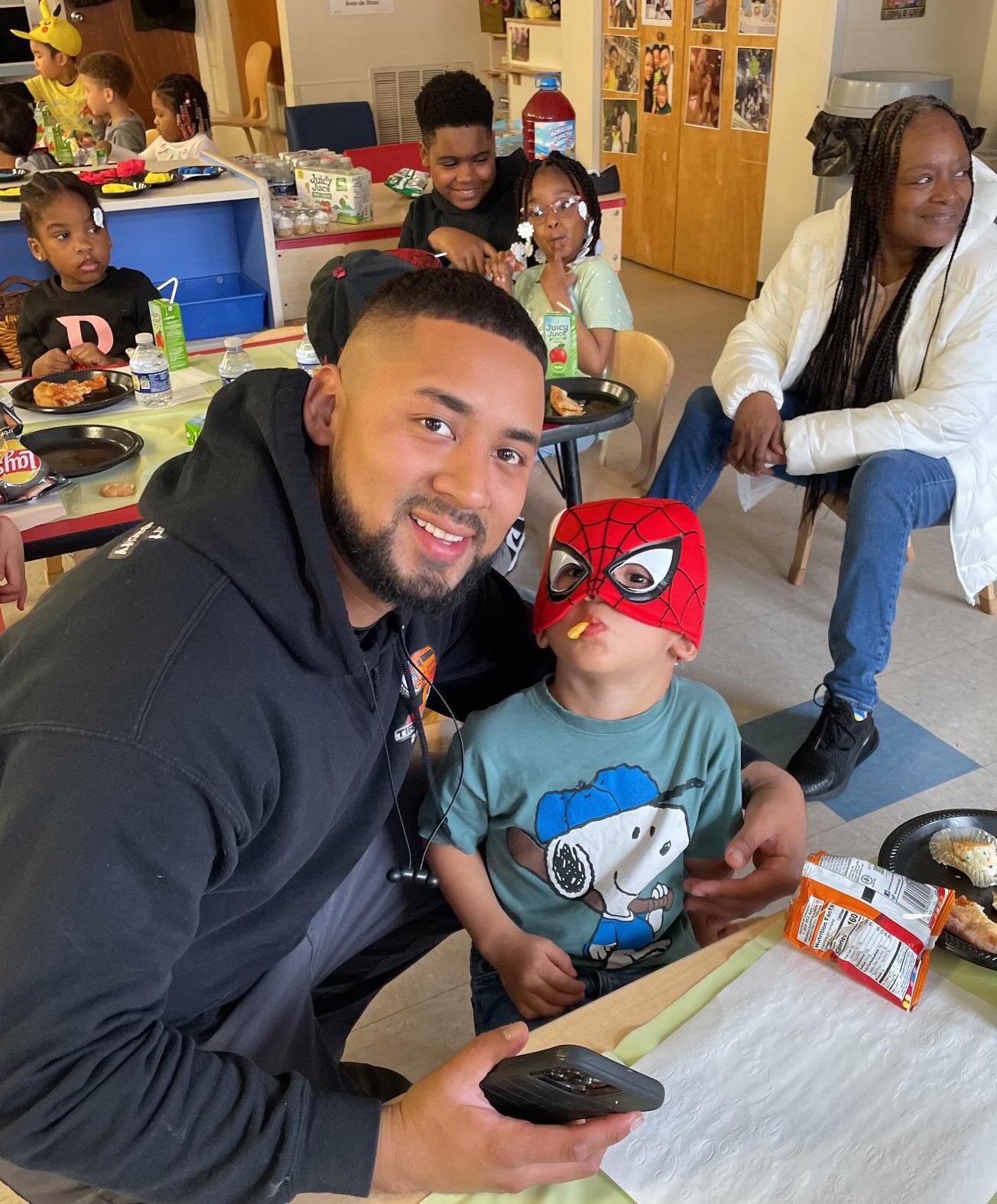
Throughout the year, all of the teachers in KenCrest’s seven Early Learning Centers try to support every student and family member they can, but they can’t do it alone. This is why the Harvey Davis Family Fund is such a blessing for our ELC communities.
In 1999, Rev. Harvey Paul Davis, a member of the KenCrest family, began the Family Fund to help others with limited resources in the communities KenCrest serves. He started rallying friends, family members, volunteers, and donors to come together and bring joy to their communities during the holiday season.
Now, 25 years later, the Family Fund continues to do just that. With support from local communities, volunteers, and more, KenCrest can


Madison
Last year, Madison Fields wanted to start working, so she went through the Pennsylvania Office Rehabilitation (OVR)—a service that helps with disabilities prepare for, obtain, and maintain employment—where she was matched with a job coach

Madison was always capable of joining the workforce. She graduated cum laude from Wilson High School and is a member of the National Honor Society Thespian Society. She was involved extracurricular activities, including Unified Track and Field, and participated in various plays. She and directed her own play, “The Presumptuous modern-day version of the 80’s movie “The Breakfast
Fields participated in various plays throughout her high school career, including “The Little Prince,” “Shrek,” and “You’re a Good Man, Charlie Brown.” She even started producing and releasing her own Electronic Dance Music (EDM) under the DJ name Flipp Flopp.
In April 2023, Madison started working at her first job as a cashier at Goodwill. At first, Fields was anxious about beginning to work; she worried about being unable to count change or missing inventory. However, after her first day, her job coach, Kelly, taught her a few tips and tricks to help her along the way.
In September, Fields will begin attending the Reading Area Community College, where she will pursue social work. She hopes to one day open her own practice to support other neurodivergent individuals.
